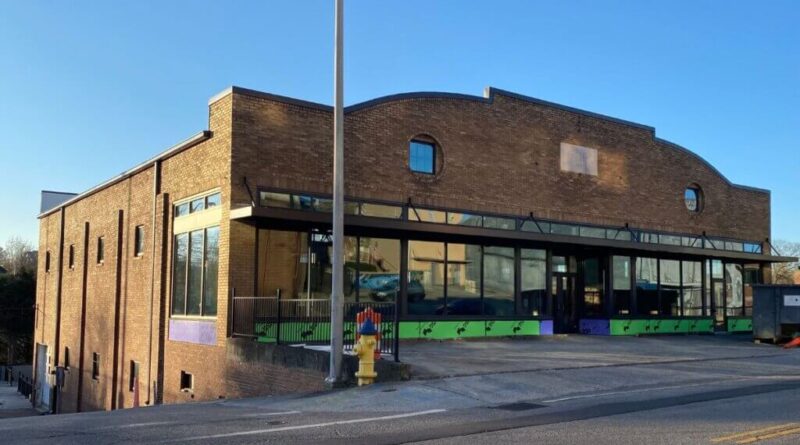Bridging the Gap: Maryville College Downtown Hub’s Role in Reconnecting with Downtown Maryville
Maryville College has long been a pillar of the Maryville community. In its early years, it played a central role in shaping the community dynamics of downtown Maryville.
Established in 1819 as the Southern and Western Theological Seminary, the college initially resided downtown. However, in 1870, Anderson Hall was built on what is now recognized as the college campus.
Over the years, the distance between Maryville College and downtown increased. The evolution of the campus led to a shift where the college became more self-contained, and its direct engagement with the town diminished.
Like many small towns across the country, Maryville’s downtown faced challenges and changes in the latter half of the 20th century. Economic shifts, suburbanization and changes in shopping patterns affected the vitality of downtown areas nationwide. The rise of strip malls and shopping venues outside of the downtown center led to a gradual decline in foot traffic in Maryville’s historic downtown, and over time, the growing traffic on Lamar Alexander Parkway created a divide between the Maryville College campus and the downtown area.
Maryville College’s new Downtown Hub, set to open in Fall 2024, is not just a physical structure but a strategic move to rekindle the ties between the college and the heart of downtown Maryville. Under President Coker, efforts are underway to uphold Maryville College as being “of and for the region”.
The Downtown Hub will occupy a significant landmark in downtown Maryville: the former J&K Grocery building, built in 1941. Significant renovations have transformed the space, providing the college with a fresh canvas for growth. Streetscaping along College Street will beautify the connecting corridor between the college and the Hub.
The Maryville College Downtown Hub will have lots to offer Maryville College students and community members alike. Noteworthy features of The Hub include two versatile classrooms, a teaching and demonstration kitchen and brewing equipment, which will be dedicated to the newly- introduced Fermentation Science minor at MC. There will also be a gift shop.
The Downtown Hub will also be the headquarters of the College’s budding Hospitality and Regional Identity program. Offering both a major and minor, the program places a significant emphasis on customer experience and imparts lessons aligned with a regional context.
Hospitality and Regional Identity Program Coordinator, Dr. Angela Sebby, shared Insights into the expansive opportunities the hospitality industry offers. Beyond the conventional boundaries of the hospitality industry, this program emphasizes its impact across various sectors. “If you’re not in the industry, you’re connected to it,” she said.
Sebby envisions this program as a means to elevate Southern hospitality, recognizing it as a unique asset in the area. With a focus on cultivating the perfect background for this major, Sebby underscored the essence of hospitality: going above and beyond in service to others.
Sebby explained that the Hospitality and Regional Identity degree at Maryville College doesn’t limit graduates to managing a specific aspect of hospitality; instead, it provides a comprehensive understanding of the entire sector. It parallels the approach of other management degrees, while fostering critical thinking skills rooted in liberal arts.
The Downtown Hub will provide a place for students of Hospitality and Regional Identity to form meaningful relationships with local businesses, giving them real-world experience. Students can take advantage of MC’s partnership with Blackberry Farm, RT Lodge, Oldham Hospitality and Blount Partnership, regional and national leaders in the hospitality industry.

